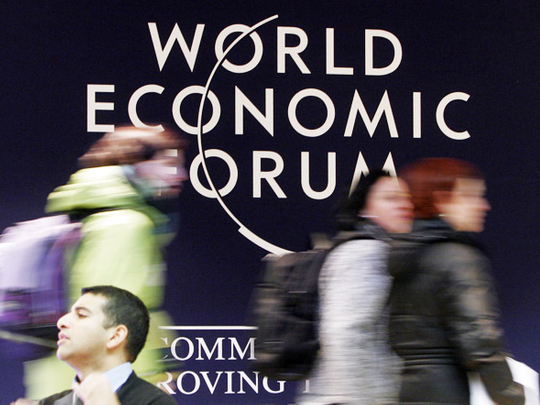
Dubai: The big clash expected in Davos will be between governments planning tough new regulations for financial services and bankers arguing that these regulation will harm their ability to support businesses getting out of the recession.
The governments are being pushed by popular anger at the banks having caused the credit crunch in the first place. The Obama administration is leading the way with plans to reduce banks' size or market share, impose tough controls on what businesses the banks will own and a new transaction levy.
The banks in 2010 are far more confident than they were in 2009. They point to a relatively good second half of 2009, with business data from Europe and the US looking up, and strong economic growth in China, India and Brazil.
Read Gulf News' Davos diary
But delegates from both sides of this key debate will get to Davos in much better shape than last year.
In January 2009 the credit crunch had only just started to spread across the world, and the confusion and near panic over trying to find an answer to what seemed like an impending massive economic depression was all too obvious.
There was no consensus about how to move forward, and the 2009 World Economic Forum was dominated by a real sense that the vital March meeting of the G20 would fail.
This concentrated people's minds and last year's forum served a vital purpose in gathering together the many strands of thinking, so building the consensus for how to move ahead at the London G20 meeting of heads of government in March 2009.
When the G20 leaders met, they were able to build a global plan, which has largely succeeded in staving off what looked like near total fin-ancial collapse and global depression.
Davos 2010 is also looking at where the world's institutions have failed. Why did the World Bank and International Monetary Fund fail to see the impending global recession?
Why is the World Trade Organisation stuck without forward momentum despite wide agreement that free trade brings prosperity? Why did the Copenhagen summit on climate change fail to come to any hard decisions, on the most important issue facing the planet?
The forum has encapsulated its mission this year with a call to "rethink, redesign, rebuild". It does not want to duplicate what is happening in other arenas, such as in the IMF, which is already discussing how to change its mission and structure.
No more superpowers
The planners of Davos want to use the 2010 meeting to give more definition to the increasingly consensual way that international affairs have to be conducted in today's world. The era of the twin or single superpower is over, and a vast range of issues which are of vital importance to the world cannot be resolved in small meetings of the rich nations.
Finding answers also requires thinking to cross all sorts of traditionally separate disciplines.
Read special coverage of the World Economic Forum
For example one session will look at the close links between water, food and energy, trying to clarify how any strategy on one of these areas will fail unless it is linked to a plan on the other two.
There is no way that any country can achieve energy security without a proper strategy on water since water is both an integral part of how energy is produced, and also how energy is used to provide water to agriculture, industry and homes.
At the same time, more than 70 per cent of water goes to agriculture, which often wastes more than 50 per cent of production as it moves through the delivery chain. This means a huge amount of water is wasted, and also a huge amount of energy.
Tracking these links gathers together government bodies and others who traditionally rely talk to each other, and often do not understand each other.
Finding a strategy that meets the aims of all three sectors (food, energy and water) is very hard, yet without cooperation, none can succeed. This is where the forum is at its best, dragging unwilling partners into the shocked realisation that they have to work together












